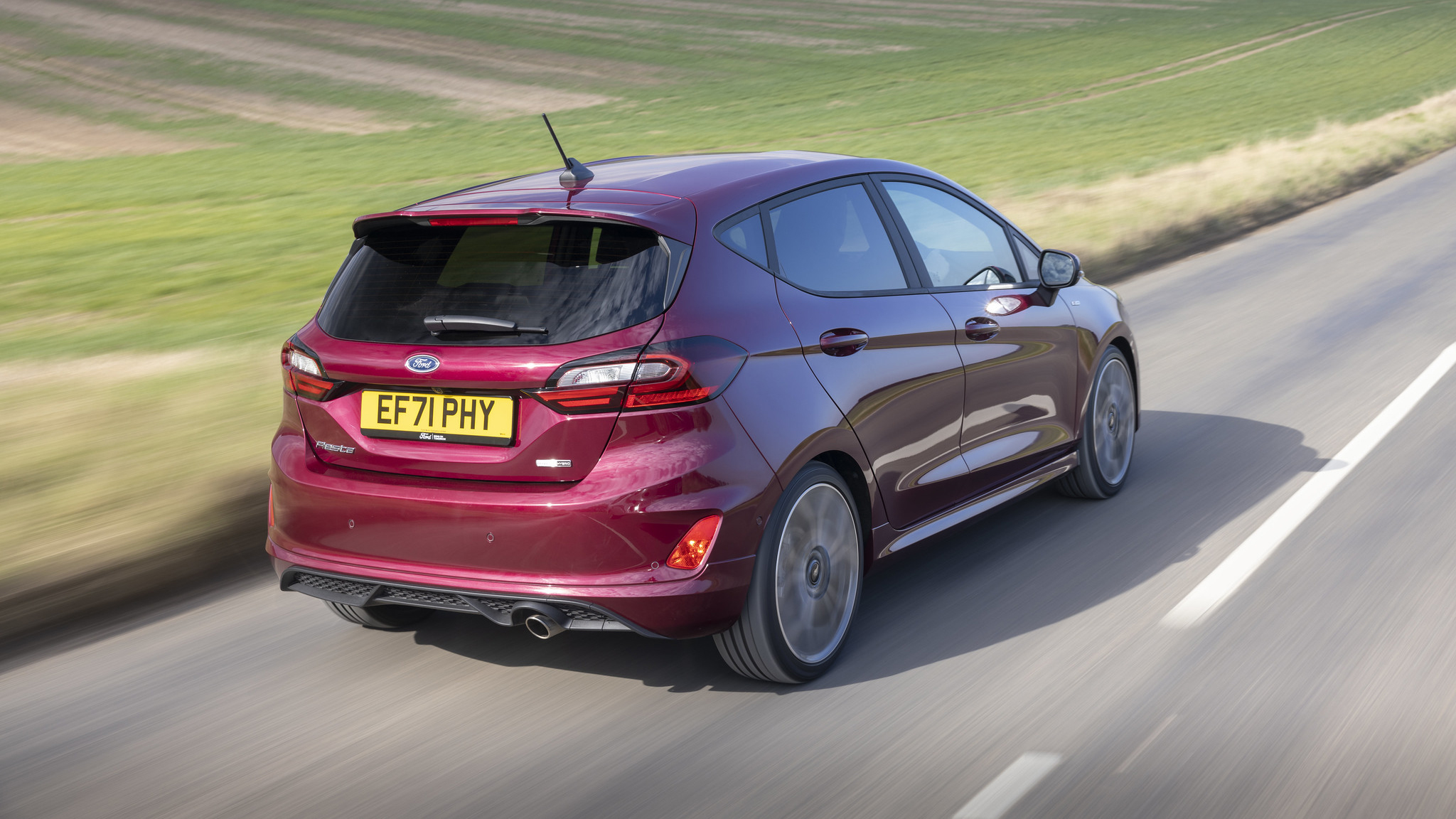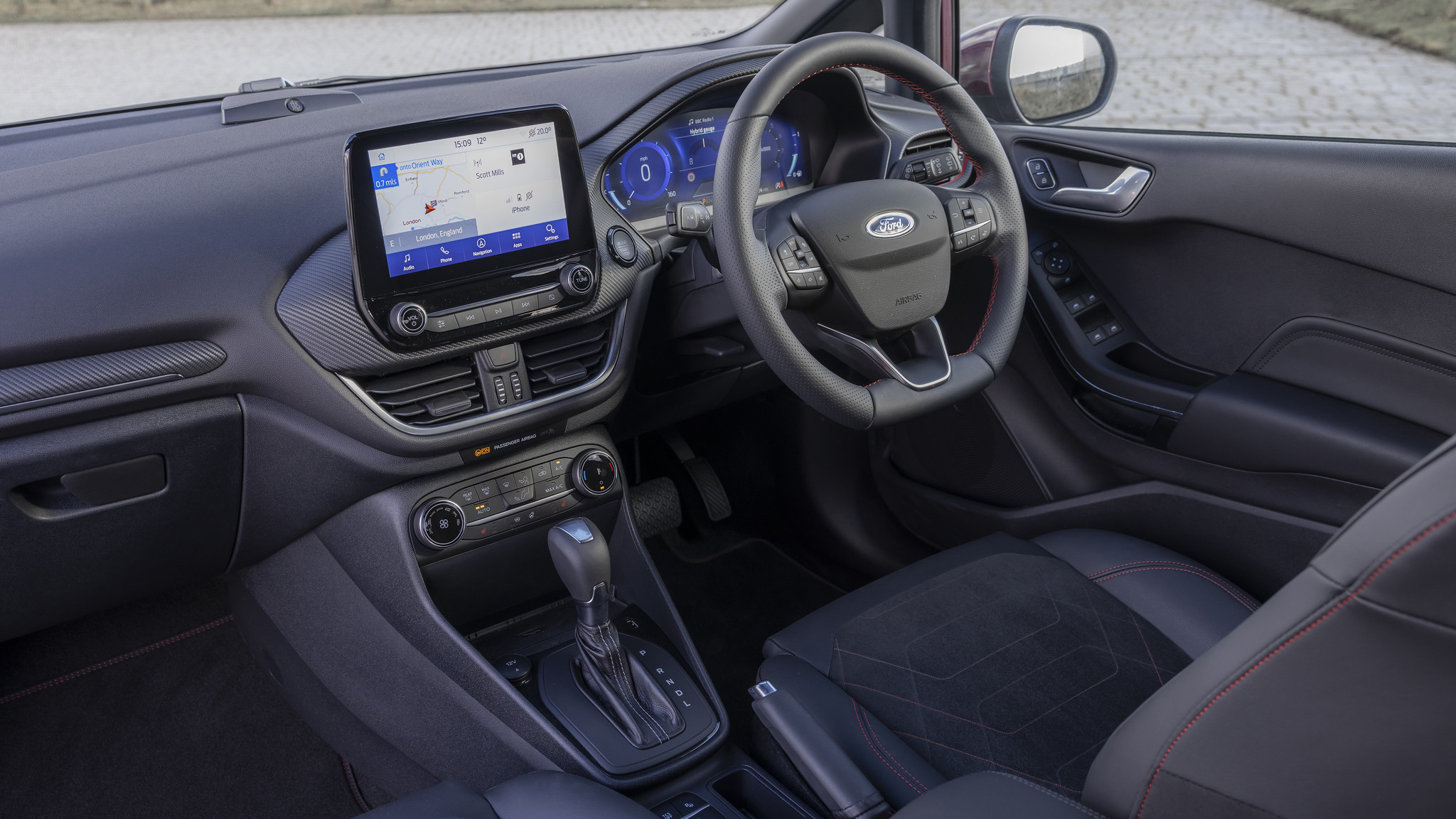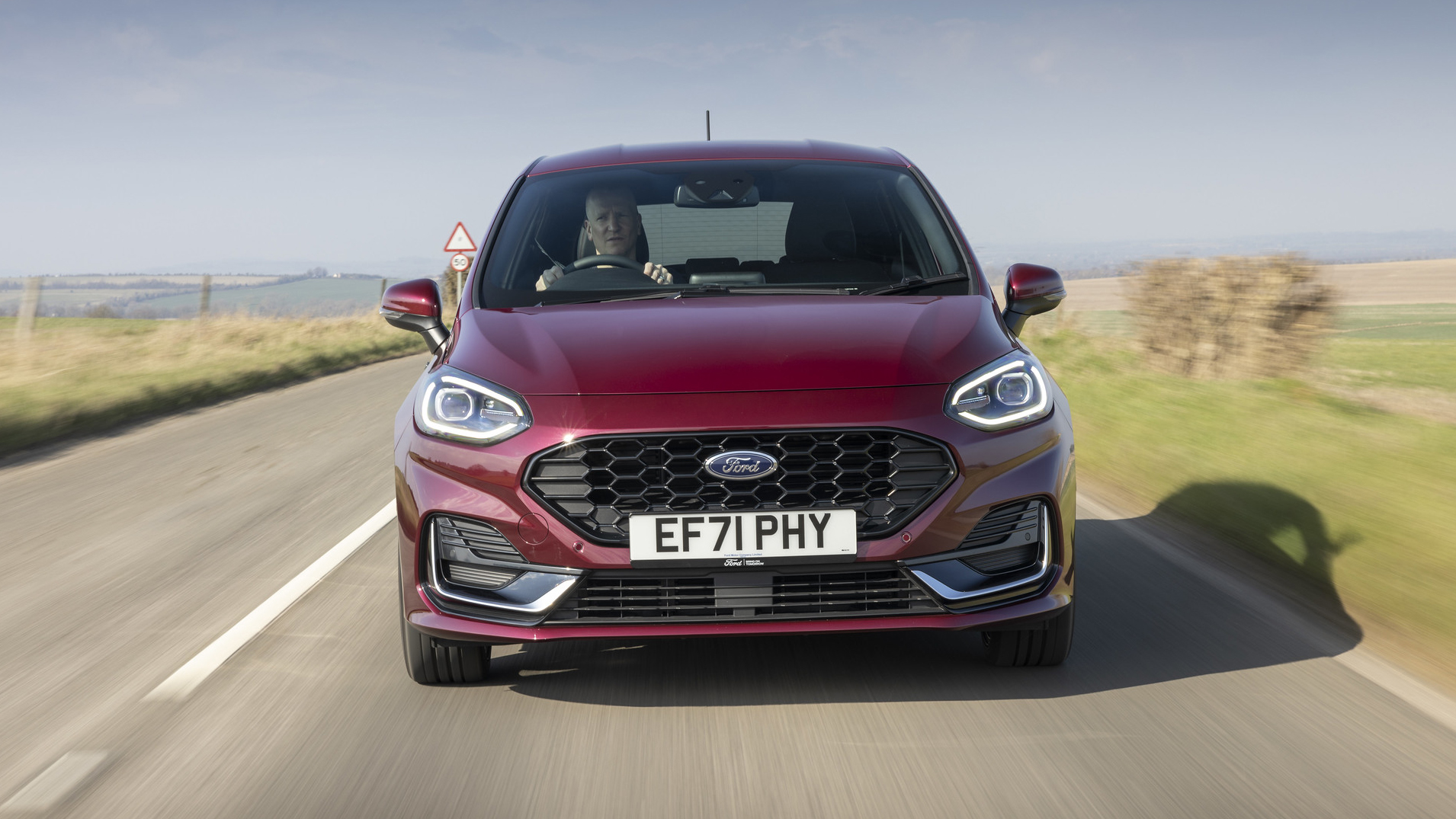
Ford Fiesta review
Interior
What is it like on the inside?
This is where the modern Fiesta proves just how grown up it has become. All trim levels now get a responsive eight-inch touchscreen as standard that sits slap bang in the centre of the thoughtfully laid out dash and comes with Apple CarPlay and Android Auto connectivity.
Anything other than the base spec Trend cars get the more senior SYNC 3 system on the same screen, which adds voice control and FordPass Connect (up-to-date traffic info in the nav and on-board WiFi for up to ten devices). There’s also the option of a wireless phone charging pad and a 10-speaker, 575-watt B&O sound system, while Vignale versions of each trim level bring a 12.3-inch digital instrument cluster as standard.
You get three drive modes - Eco, Normal and Sport (with an additional 'Slippery' mode in the Fiesta Active) - and the seats have a wide range of adjustment so you can get yourself nice and low in the car. It's a good position to drive from. The front seats are supportive – particularly the sport units in the ST-Line – and if you go all-out for Vignale trim you’ll get synthetic leather inserts. Generally the quality of materials and the way they're fitted together is up to snuff for a small mainstream car.
The back seats stop short of being an assault on human rights, unless you have the panoramic sunroof which hacks away at headroom. If you want to carry grown-ups in the back of your supermini and not be hated by them, get a Honda Jazz.
The packaging of the Fiesta’s mild-hybrid system was a triumph, though, so if you spec the extra electricity your boot space or legroom won’t suffer. The boot is 311 litres with the rear seats in place (compare that to the Skoda Fabia’s 380-litre chasm) and 1,093 litres with them folded flat. Probably worth noting that the fuel tank in the MHEV is the same size as a non-hybrid Fiesta too.
Featured

Trending this week
- Car Review
BMW 1 Series
- Top Gear's Top 9
Nine dreadful bits of 'homeware' made by carmakers






